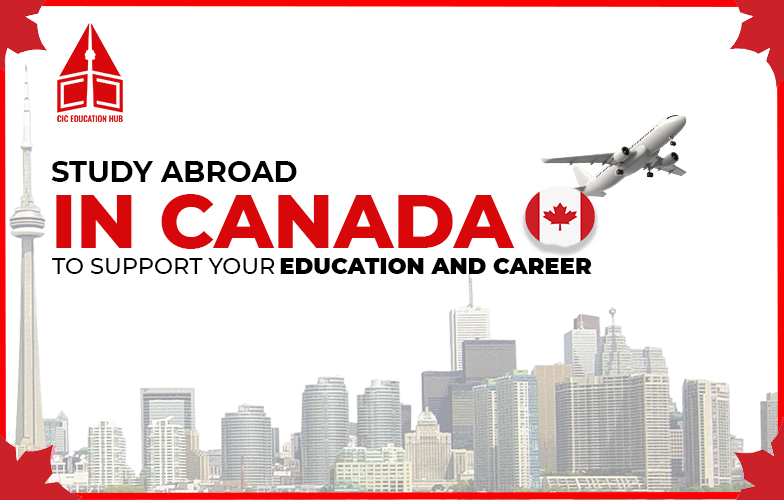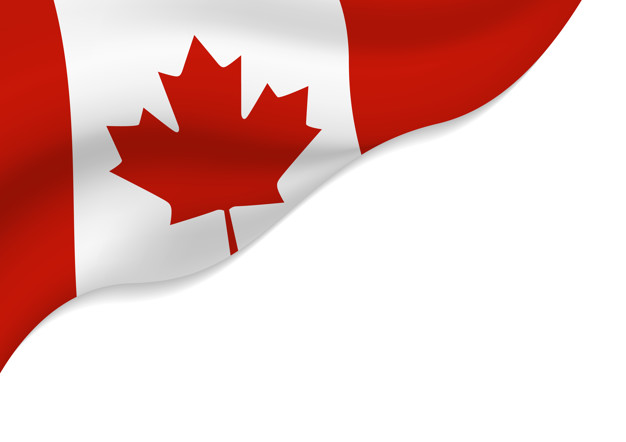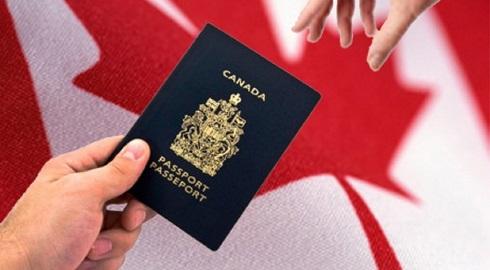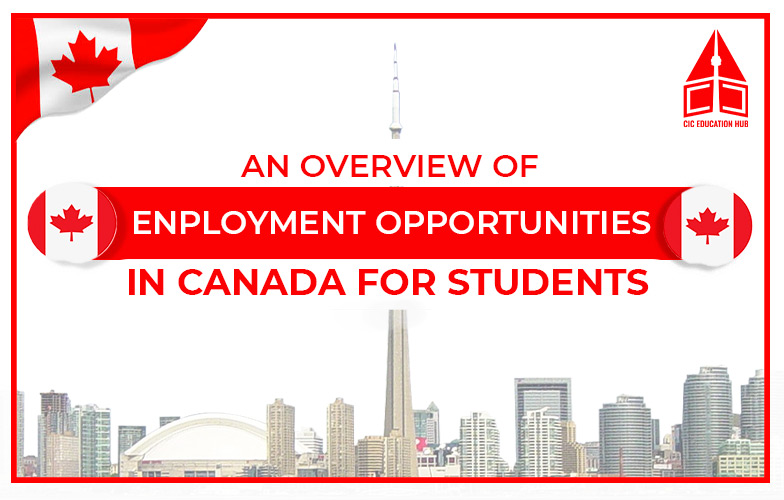Canada has been the most preferred destination for abroad studies, career opportunities, and immigration. In the past few decades, there has been a tremendous increase in the number of people moving to Canada for various reasons. Favorable immigration policies of Canada have been the major reason behind people preferring to live, work, or study in Canada. Also, Canada offers good career opportunities to its citizens as well as foreigners, be it, immigrants or students with the best jobs in Canada.
Since the country has been facing skill shortages, it has been attracting a large number of immigrants through various jobs in Canada. Also, according to CFIB’s latest Help Wanted Survey, there were 430,000 private sector openings that remained unfilled in Q3 2018 because employers were unable to find qualified candidates. So, now you may be wondering about the requirements to work in Canada, especially as a student. Here, we will provide you full information regarding jobs in Canada.
Requirements To Work In Canada
The requirements to work in Canada are different for students and immigrants. It is a well-known fact that the government of Canada allows international students to work and study in Canada with their Canadian student visa.
Also, Check out:
Requirements For Students To Work In Canada

If you have admission to an eligible institution as a full-time student and have a Canadian study permit, you can get on-campus jobs in Canada even without a work permit. And, if you have a Canada study permit and are enrolled full-time in an academic, professional, or vocational training program at a designated learning institution, you may work off-campus without a work permit. Almost all the students work in Canada after they complete their studies in Canada from Nepal.
Generally, your Canada study permit will indicate if you are able to work off-campus. In this case, if your program is in session, you are allowed to work for up to 20 hours per week and you can work full-time during scheduled breaks in the academic calendar. Working while studying in Canada will allow you to get jobs in Canada so that you can cover your fees and living expenses. Canada also provides various student work in Canada.
The abundance of employment opportunities in Canada is what attracts many people from around the globe, especially international students. The majority of international students studying in Canada aim to work and live in Canada for the rest of their lives. Once you get your Canadian diploma, you can start applying for full-time jobs in Canada through various postgraduate work programs. These work programs grant you a special work permit which allows you to work in Canada for the same period you’ve studied there. Generally, this work permit is for a period of three years.
In order to apply for such full-time jobs in Canada, you need to meet the following requirements:

- You should have a full-time student degree in Canada,
- You need to have a diploma from a public tertiary education institution or any private authorized institution by the government,
- You should apply for the work permit within 90 days after you’ve received the diploma,
- You have a study permit when applying for the work permit.
The Canadian job market provides numerous employment opportunities in Canada to international students who have graduated from colleges/universities in Canada. This way, the students can earn while they work and study in Canada from Nepal. Employment opportunities in Canada are abundant in many cities and provinces as the country is facing labor shortages in important sectors and industries. Canadian employers are eager to hire qualified and responsible workers, be it national or foreigners for both full-time and part-time jobs in Canada.
Also, do note that before you start searching for jobs in Canada, you should get a Social Insurance Number which will be required for work and to have access to the national programs and other benefits. Also, there are certain jobs in Canada that require a minimum age which differs according to the provinces of Canada.
Requirements For Work Permit Visa In Canada
If are not a student, but willing to work in Canada, you’ll need to obtain a Canada Work Permit Visa. This visa is required for foreigners who wish to get jobs in Canada for a specific period of time. More than 300,000 individuals are granted a work permit for Canada every year. The employer should also obtain from ESDC (Employment and Social Development Canada) and LMIA (Labor Market Impact Assessment) in order to recruit foreign skilled workers.
Related Content :- Get To Know More About Study And Work In Canada
Having a Canadian work permit visa allows you to:

- Work in Canada with the employer mentioned in the work permit
- Apply for Dependent Visas for your dependents
- Travel and visit various places in Canada
- Apply for a PR visa
Canada Work Permit Visa Eligibility Criteria
In order to apply for a Canada Work Permit from Nepal, you need to meet the following requirements.
General Eligibility Criteria
- Proof that ensures that you’ll leave Canada when your work permit expires
- Proof of documents that shows that you have enough funds to support yourself and your family during your stay in Canada
- No record of any criminal activity and police report stating the same
- You don’t pose a threat to Canada’s security
- Medical report stating good health
- Have no plans to work for an employer listed as ineligible by the government
- Have no plans to work for an employer who offers erotic dance, escort services, striptease, or erotic massages
- Must be ready to provide any documents demanded by officers to qualify your entry to Canada
How To Work In Canada?

As an international student or foreigner staying in Canada, you may be wondering about how you can get jobs in Canada and how to work in Canada. However, the process is very simple if you abide by the law in Canada. The requirements provided in the previous section are mandatory to apply for jobs in Canada. You cannot get jobs in Canada without a legal work permit.In order to get a job offer from Canada, you need to have skills or work experience in the areas Canada requires or demands.
You can also gain work experience by working while studying in Canada. If you have experience in any job that Canada requires, your employer will need to arrange for a document called a Labour Market Impact Assessment (LMIA) that shows that your job cannot be filled by the local Canadians and thus needs to hire you. You can apply for both full-time and part-time jobs in Canada.
You can also participate in formal job fairs, online forums, and even other business events that may be hosted around the year. Networking in offline fairs/events will increase your chances of getting jobs in Canada. You can also apply to various jobs in Canada through job sites in Canada.
How To Apply For Canada Working Visa?
To apply for a Canada working visa, the first thing you need to do is submit the visa application through the paper application or E-application.
Visa Application through Paper
Following are the steps for applying for a Canadian working visa through paper:

Step 2: Fill out the application form electronically and print the completed application form. Please note that the hand-written forms will not be accepted. If you are not able to complete a paper application by yourself and require assistance, you can contact VFS Global’s chargeable Assisted Service – Paper Application, at the Visa Application Centre. This service is available for both biometric and non-biometric applicants.
Step 3: Now, complete supporting documents as per the IRCC document checklist relevant to the visa category. If in case you are unable to provide all the supporting documents as mentioned in the official IRCC document checklist, you need to fill out and sign a waiver form and attach it with your application. Failing to provide the documents stated in the IRCC document checklist can cause delays or refusal of your application for a visa, permit or travel document.
Step 4: Pay the Government of Canada Fee and biometric fee (if required) as per instructions on the IRCC website.
Step 5: If you are NOT REQUIRED to submit biometrics, visit your local Canada Visa Application Centre along with your passport, photographs, completed forms, the Government of Canada Fee, and all the supporting documents listed in the IRCC document checklist. Applicable Visa Application Centre service charges for package transmission and Assisted Service – The paper application will be charged to you at the time of the application submission. If you are REQUIRED to submit biometrics, a prior appointment is mandatory for biometric enrolment.
Important Note: If you need to give your biometrics, the biometric fee of CAD85 covers the Canada Visa Application Centre service charge for Package Transmission. Charges for additional services are not included
Step 6: On your appointment date (if applicable), you need to bring your completed and printed application forms, supporting documents, Government of Canada fee payment receipt, original passport, and two copies of the passport biodata page. If you are not required to submit biometrics, please visit the Visa Application Centre during business hours.
Once you are at the Canada Visa Application Centre, your application and biometric (if applicable) will be collected. Pay the applicable Visa Application Centre service charges and obtain a receipt. This receipt contains your unique tracking number which you will need to track the progress of your application online.
Online Visa Application/E-Application

In case of E-application, to find out if you need to give biometrics,pleasevisit http://www.cic.gc.ca/english/visit/biometrics.asp
Please note that appointments are mandatory in order to enroll in biometrics at the Visa Application Centre. A planned visit with a preferred time slot at the Visa Application Centre guarantees prompt service thus eliminating longer waiting time resulting in inconvenience.
Applicants requesting emergency appointments for the purpose of biometric collection may do so provided suitable proof of the emergency is presented at the time of the appointment. Suitable proof may include a note or other documentation from an official. Please note that this proof only needs to be presented and will not be collected by the VAC and that this will provide an emergency biometric appointment but not affect IRCC’s processing time for the application. For any further information or questions, the Contact Centre is able to assist with any inquiries.
It is advised that you keep your hands henna-free at the time of your Biometric Appointment to ensure unimpeded biometric enrollment. Non-compliant applicants will be asked to visit the Visa Application Centre with a fresh appointment after 30 calendar days. Kindly adhere to this requirement to avoid delays and multiple visits to the center.
Step 1: You can find complete instructions on how to submit a visa application via E-Application on the IRCC website. Applicants who are REQUIRED to submit biometrics after successfully submitting an E-Application will receive a notification in the form of a Biometric Instruction Letter (BIL). Upon receipt of the BIL, you will be required to visit the Visa Application Centre to submit biometrics.
Step 2: If you are REQUIRED to submit biometrics, a prior appointment is mandatory for biometric enrolment.
Once an appointment is scheduled, an appointment letter will be generated along with a reference number.
The appointment letter will provide details of the date, time, and location of the appointment, along with other relevant information regarding security at the center, additional services, etc.
If you are NOT REQUIRED to submit biometrics, please wait for the decision of your application and check your MyCIC account for further instructions.
Step 3: On the date of your appointment (if applicable) please arrive at the center 15 minutes prior to your appointed time.
Please bring your original passport, appointment letter, and Biometric Instruction Letter.
Upon completion of biometric enrolment, you will be provided a receipt confirming that your biometric has been collected at the Canada Visa Application Centre.
Step 4:Once a decision has been taken on your visa application, you will be notified via email to submit your passport through a Passport Request Letter. If you are unsure of emails from IRCC getting delivered to you, please check you’re my CIC account periodically for updates.
Upon receipt of the Passport Request Letter, please submit your original passport, along with the Passport Request Letter, at the Visa Application Centre.
Document Requirements:
- A valid passport with a validity of more than 6 months
- Two recent passport-sized photographs
- Academic certificates
- Work experience certificates
- Proof of adequate financial resources to cover expenses during your stay in Canada
- Medical Report from registered hospitals
- Application fee
- Assurance to the immigration officials that you’ll return to your home country after the end of their employment.
How To Apply For Jobs In Canada?
Once you’ve received your work permit, you can get started with searching for jobs in Canada. The best way to search for jobs in Canada as a foreigner is through online job search sites. With this, you can explore jobs in Canada according to your needs and eligibility. Some of the most popular job sites in Canada are:

- Indeed
- Government of Canada
- Canadian Immigrant
- Monster
- Charity Village
- CanadaJobs.com
- Workopolis
Working While Studying In Canada
Can International Students Work In Canada?

According to the Government of Canada, international students are allowed to work and study in Canada if their Canadian student visa or permit mentions that they are allowed to work either on or off-campus. Working while studying in Canada is strictly prohibited if you don’t have a legal work permit. The Canadian job market provides job opportunities in Canada for both full-time and part-time jobs.
Criteria For Working On-Campus
Working “On-campus” means you can work at all the buildings on your school/campus premises. If your school has more than one campus, you may only work at the campus where you’re studying. You can work at other locations rather than the campus you are studying if you’re working as a teaching or research assistant and if your work is related to a research grant. In such cases, you may work at a library, hospital, or research facility associated with your school. This can be outside your campus premises too.
You can work on your school campus, without a work permit, if:
- You are a full-time post-secondary student at a:
- public post-secondary schools, such as a college or university, or CEGEP in Quebec
- private college-level school in Quebec that operates under the same rules as public schools, and is at least 50% funded by government grants, or
- Canadian private school that can legally award degrees under provincial law
- You have a valid study permit, and
- You have a Social Insurance Number (SIN).
Criteria For Working Off-Campus

An international student studying in Canada can also work off-campus given that he/she fulfills the criteria mentioned by the government of Canada. Here are the criteria for working off-campus:
- You should have a valid study permit that allows you to work off-campus
- You should be a full-time student at a college/university. Or, you should be enrolled in a post-secondary academic, vocational, or professional training program, OR secondary-level vocational training program (For Quebec only)
- Your study program should be at least 6 months long and lead to a degree, diploma, or certificate
- You should have a Social Insurance Number (SIN)
While looking for job opportunities in Canada for working off-campus you need to pay attention to the number of hours you can work per week as an international student. You cannot work off-campus if you are on authorized leave from your studies, or you’re switching schools and you’re not studying. But, you can always work again once you’re back to studying. The Canadian job market provides many off-campus part-time jobs for students in Canada. While working off-campus, you can look for the highest paying part-time jobs in Canada for students.
How Many Hours To Work During College?
An international student can start working off-campus as soon as the classes begin. During regular school semesters, you can get part-time jobs in Canada for up to 20 hours a week. And, during scheduled breaks like summer and winter breaks, you can work full-time. If your program doesn’t have scheduled academic breaks, you can’t work more than 20 hours per week. Also, note that you cannot work during a break that comes before you start your very first school semester.
Is It Hard For International Students To Get A Job?

It is not so difficult for international students to get jobs in Canada. Job prospects in Canada during or after completion of studies are excellent. The Canadian universities boast of having more than 5000 global tie-ups. Since the course curriculum in Canada is very industry-oriented, more than 90% of the graduates get employed in less than six months after finishing their studies in Canada. There are many jobs for international students in Canada.
Highest Paying Part-Time Jobs In Canada For Students
As a student studying abroad, it is always a plus point to have extra jobs in Canada to support your daily life. The best thing about studying in Canada is that it allows its international students to earn through part-time jobs in Canada. Thus, almost 100% of students work in Canada.
Here are some of the highest paying part-time jobs in Canada for students:
#1 Rideshare Driver
In order to work as a rideshare driver, all you need is a reliable vehicle, smartphone, and pass a background check. Rideshare drivers earn around $15-$30 per hour on average.
#2 Translator
Working as a freelance or part-time translator will let you earn around $14 to $55 per hour. Most of the international students in Canada seek translation services.
#3 Waiter
A waiter in Canada can earn about $20 an hour plus tips. This type of job in Canada provides flexible schedules as well as an opportunity to work as part-time waiters during weekends.
#4 Content Editor
Working as a content editor allows you to earn around $40 to $60 per hour. All you need is good grammar, spelling, and, of course, editing all kinds of content such as books, magazines, and websites.
#5 Tutor
If you are an expert in any particular subject at school, you can opt to be a tutor. As a tutor, you can earn around $30 to $60 per hour.
#6 Fitness Instructor
You can work as a personal instructor and earn around $30 per hour. Instructors can work in gyms, studios, or in the client’s home. If you choose to work in a client’s home, your payment will be around $75 to $100 per hour.
#7 Music Teacher
Giving music lessons can help you earn good money. Working as a music teacher, you can earn a minimum of $12 an hour.
#8 Social Media Assistant
This job involves tasks like updating social media sites like Facebook, Instagram, Twitter, Snapchat, and other sites for companies. The payment for this type of job in Canada can be a fixed amount per month or per hour. On an hourly basis, you can earn about $21 an hour.
#9 Online Researcher
If you have excellent research skills, then this is the job for you. In this job, all you have to do is support business professionals by researching questions to deliver clients with high-quality answers and personable explanations. This can help you earn about $37 per hour.
#10 Web Designer
If you have a good knowledge regarding Adobe Photoshop and Illustrator along with exceptional design sense and lots of creativity, you can work as a web designer. This type of job in Canada can help you earn around $20 to $150 per hour.
Is Canada Safe For International Students?

Canada is regarded as the safest place in the world. Safety and security are the major concerns of the students who choose to study in Canada from Nepal. Students and especially their parents are highly concerned about their safety while traveling to international destinations for study. Security factors like crime against women, racial discrimination, theft, and burglary play an important role while choosing a destination for study abroad. Canada has been successful in building its reputation as a country having the lowest crime rates and cases of racial discrimination. Statistics by Numbeo reveal that Canada’s safety index (62.42) is much higher than the safety indices of other popular studies abroad destinations such as the US (49.99), UK (57.9), and Australia (57.94).
Similarly, the Government and Universities in Canada play an important role in the safety of students inside the university and across the country. Starting from health care to security, necessary measures are taken to keep students safe. These facts and figures answer your question on “Is Canada safe for international students?” Therefore, if you are looking forward to studying abroad with quality education, affordable fees, and a safe living environment, Canada is the ultimate destination for you. Many of the Nepali students choose to study in Canada because of the sense of safety and security the country provides.
Along with safety, studying in Canada exposes you to a multicultural environment where you’ll be welcomed by people of different religions, races, and cultures. This allows international students to interact with people of all backgrounds and ethnicity. And the best part is, having a multicultural environment will let you find restaurants serving ethnic and traditional Nepali foods too! This will give you a feeling of having a home away from home. No wonder that Canada has the 7th largest student population in the world, with 2,65,000 international students studying at various levels of education.
Jobs In Canada After Graduation

Canada offers various job prospects to students after graduation. After you graduate from a college or university in Canada, you will be allowed to work as long as the length of the degree. To work beyond that term, you’ll need to apply for the PGWPP – Post Graduation Work Permit Programme within 90 days after the completion of your course.
Also, there are 2 types of work permits you can obtain if you want to get jobs in Canada after graduation:
- Openwork permits
An open work permit allows you to work for any employer in Canada, except for an employer:
- who is listed as ineligible on the list of
employers who have failed to comply with the conditions or
- who regularly offers striptease, erotic dance, escort services or erotic massages
- Employer-specific work permits
An employer-specific work permit allows you to work according to the conditions on your work permit, which include:
- the name of the employer you can work for
- how long you can work
- the location where you can work (if applicable)
There are numerous opportunities for full-time jobs in Canada for international students after they have completed their study program. You can work full time after completion of your study program if:
- You have received written confirmation from your current school that you completed your program
- You have already applied for a work permit before your study permit expired
- You have received a letter of acceptance to a new full-time study program at a college/university.
- You will start your new program within 150 calendar days of receiving the confirmation that you completed your previous program
- You are waiting for a decision on your work permit application
The average salary for entry-level jobs in Canada is about CAD $50,000 to CAD $60,000 per year. However, salaries are higher in fields like IT & Computer Science, Scientific Research, Petroleum & Oil and Renewable Energy, Big Data, etc.
Top 10 Highest Paying Jobs In Canada

Here’s the list of top 10 highest paying jobs in Canada:
- Software Engineer
This is one of the highest paying jobs in Canada. As a software engineer, you can earn between CAD 45,000 to CAD 156,000 per year. This job pays an average of CAD 92,216 per year for beginners.
- Graphic Designer
This is another highest paying jobs in Canada. Most of the companies with huge design requirements hire full-time graphic designers. But, small companies like to hire freelance graphic designers. Working part-time in this profession, you can earn up to CAD 45,836 per year.
- Truck Driver
This job does not require to sit in one place for hours and hours. As one of the best paying jobs in Canada, as a truck driver, you can earn around CAD 30,225 to 75,000 per year.
- Interior Designer
Canada lacks skilled human resource in terms of interior designers. The salary range for interior designing jobs in Canada ranges from CAD 27,836 to 85,000. Thus, on average, an interior designer in Canada earns about CAD 50,000 per year.
- Statistician
If you love numbers and interpreting them, then you can look for statistician jobs in Canada. As one of the best paying jobs in Canada, on average, a statistician can earn CAD 68,820 per year.
- Dentist
As a dentist, you can earn around CAD 110,559 on average. In general, the annual salary for dentists in Canada ranges from CAD 61,000 to CAD 208,000. This is also one of the highest paying jobs in Canada.
- Physician
Due to the shortage of doctors in Canada, this is a highly demanded profession that offers high pay. The annual pay for a physician in Canada ranges from CAD 20,000 to 331,500. On average, a physician in Canada earns around CAD 195,000 per year. This is also one of the highest paying jobs in Canada.
- Psychologist
Psychologists also earn a huge amount of money in Canada. The annual salary range for Psychologists in Canada ranges between CAD 59,860 to 132,500 per year. So, on average, psychologist’s jobs in Canada will pay you around $92,367 per year. This is also one of the highest paying jobs in Canada.
- Massage Therapist
Registered nurses are very highly demanded in Canada and this is one of the highest paying jobs in Canada. As a registered nurse, you need a university degree and will basically be a doctor’s right hand in treating patients. The annual salary range for registered nurses in Canada ranges between CAD 41,396 to 128,655 per year. So, on average, registered nurse jobs in Canada will pay you around $75,680 per year. This is also one of the highest paying jobs in Canada.
Most of the students or foreigners working in Canada wish to establish their careers and live in Canada. Like any other country’s government, the Canadian government also expects you to leave Canada once you have completed your studies unless you apply for PR or a work permit. The Canadian student visa expires when your program ends and you’ll have to return home when you graduate. For example, options like the Post-Graduation Work Permit let graduates stay and work on an open work permit after graduation and give them an opportunity to get some Canadian work experience.

Studying and having working experience in Canada are major eligibility factors for many Canadian immigration programs. Canadian experience and post-secondary credentials can also increase your score in the Express Entry system. So, being an international student can help get your Canadian permanent residence by greatly increasing your chances of being selected by an existing Canada immigration program.
Having said that, we can understand why a large number of students from all over the world are choosing to study in Canada.
CIC Education Hub
CIC Education Hub is an education consultancy in Nepal that guides Nepalese students in finding the best universities in Canada and also assist in how to get jobs in Canada. The consultancy has a team of experts who have years of experience in visa counseling, documentation, reviewing SOPs, and preparing complete visa applications of Canada. Thus these competencies make CIC Education Hub the best education consultancy in Nepal for Canada.
Getting a Study and work permit for Canada involves a careful and systematic visa application package. Choosing a relevant program to write a well-covered SOP is crucial to prove the genuine intention of study for Canada’s high commission. CIC Education Hub-Team provided step by step guide to the students to prepare a complete application, and thus contributes Students to achieve their dream of studying in Canada.
Canada is preferred by people seeking a high quality of life and education. It has been consistently ranked by the UN as one of the best countries in the world to live in. Canada is also the best choice for students not just because of the quality of academics but also the off-campus work opportunities for international full-time students. CIC Education Hub helps you find the best programs/courses in the best colleges/universities in Canada.
As one of the best education consultancy for Canada in Nepal, CIC Education Hub is affiliated with the best colleges and universities in Canada. CIC Education Hub is connected to more than 50 Universities and Colleges in Canada with hundreds of degrees at varying levels, so you have a range of options greater than any you can find in Nepal. Some of the colleges with which we are affiliated are Cambrian College, University Of Prince Edward Island, Canadore College, Royal Roads University, Georgian College, and many more. All these colleges provide special scholarship programs for international students. Degree, diploma, or certificate obtained from these universities are highly valued in business, government, and academic circles around the globe. We at CIC Education Hub provide career counseling to the students so that they can decide on their future career prospects in Canada. This also includes exposing them to job opportunities in Canada for international students.
Contact us if you are looking forward to studying and get jobs in Canada from Nepal.
You might also like:











